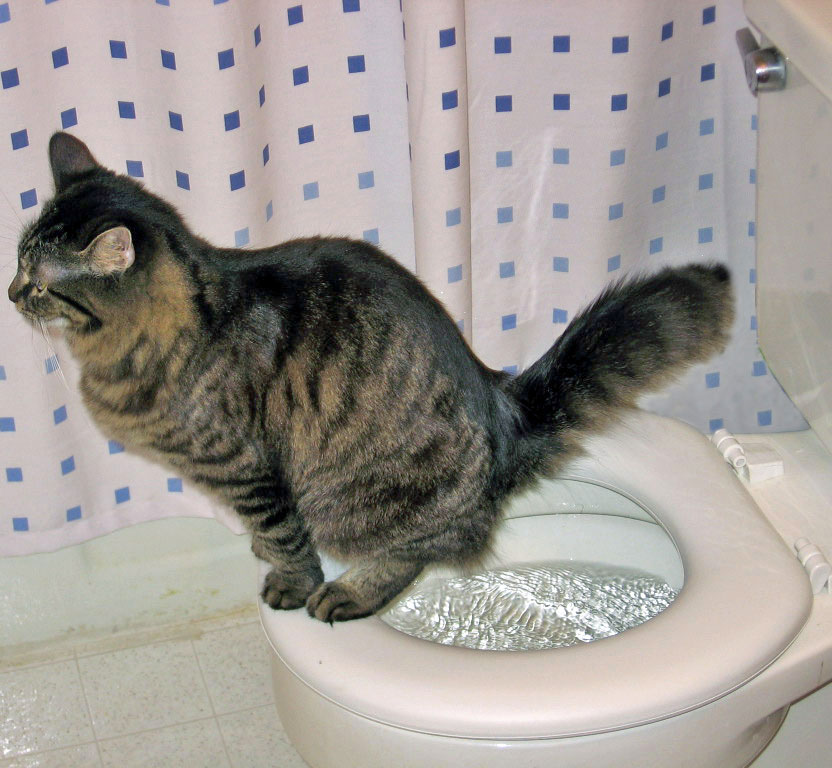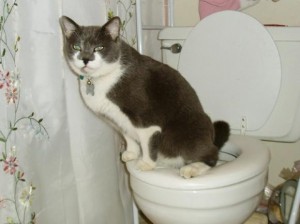Prevent Bathroom Emergencies: Never Flush Cat Poop Down Your Toilet - Professional Advice
Prevent Bathroom Emergencies: Never Flush Cat Poop Down Your Toilet - Professional Advice
Blog Article
Have you been trying to find help around How to Dispose of Cat Poop and Litter Without Plastic Bags?

Introduction
As cat owners, it's necessary to bear in mind just how we dispose of our feline pals' waste. While it might seem convenient to purge pet cat poop down the toilet, this technique can have detrimental repercussions for both the environment and human health and wellness.
Environmental Impact
Flushing feline poop introduces damaging virus and parasites into the water system, posturing a substantial risk to water ecosystems. These contaminants can negatively impact marine life and compromise water quality.
Health Risks
In addition to environmental concerns, flushing cat waste can also pose wellness threats to people. Feline feces might consist of Toxoplasma gondii, a parasite that can create toxoplasmosis-- a possibly extreme ailment, specifically for expectant females and individuals with weakened body immune systems.
Alternatives to Flushing
The good news is, there are more secure and much more responsible methods to get rid of pet cat poop. Think about the following options:
1. Scoop and Dispose in Trash
The most typical approach of getting rid of pet cat poop is to scoop it into a naturally degradable bag and toss it in the trash. Be sure to utilize a committed litter scoop and throw away the waste quickly.
2. Usage Biodegradable Litter
Go with biodegradable feline litter made from materials such as corn or wheat. These trashes are environmentally friendly and can be safely taken care of in the trash.
3. Bury in the Yard
If you have a backyard, take into consideration hiding cat waste in a designated location away from vegetable yards and water resources. Be sure to dig deep adequate to stop contamination of groundwater.
4. Set Up a Pet Waste Disposal System
Purchase an animal waste disposal system specifically made for feline waste. These systems use enzymes to break down the waste, reducing smell and environmental influence.
Final thought
Responsible pet dog ownership expands beyond giving food and shelter-- it also includes proper waste administration. By avoiding flushing feline poop down the commode and going with alternative disposal techniques, we can decrease our environmental footprint and secure human wellness.
Why You Should Never Flush Cat Poop Down the Toilet
A rose by any other name might smell as sweet, but not all poop is created equal. Toilets, and our sewage systems, are designed for human excrement, not animal waste. It might seem like it couldn’t hurt to toss cat feces into the loo, but it’s not a good idea to flush cat poop in the toilet.
First and foremost, assuming your cat uses a litter box, any waste is going to have litter on it. And even the smallest amount of litter can wreak havoc on plumbing.
Over time, small amounts build up, filling up your septic system. Most litter sold today is clumping; it is made from a type of clay that hardens when it gets wet. Ever tried to scrape old clumps from the bottom of a litter box? You know just how cement-hard it can get!
Now imagine just a small clump of that stuck in your pipes. A simple de-clogger like Drano isn’t going to cut it. And that means it’s going to cost you big time to fix it.
Parasitic Contamination
Believe it or not, your healthy kitty may be harboring a nasty parasite. Only cats excrete Toxoplasma in their feces. Yet it rarely causes serious health issues in the cats that are infected. Most people will be fine too if infected. Only pregnant women and people with compromised immune systems are at risk. (If you’ve ever heard how women who are expecting are excused from litter cleaning duty, Toxoplasma is why.)
But other animals may have a problem if infected with the parasite. And human water treatment systems aren’t designed to handle it. As a result, the systems don’t remove the parasite before discharging wastewater into local waterways. Fish, shellfish, and other marine life — otters in particular — are susceptible to toxoplasma. If exposed, most will end up with brain damage and many will die.
Depending on the species of fish, they may end up on someone’s fish hook and, ultimately on someone’s dinner plate. If that someone has a chronic illness, they’re at risk.
Skip the Toilet Training
We know there are folks out there who like to toilet train their cats. And we give them props, it takes a lot of work. But thanks to the toxoplasma, it’s not a good idea.

I found that blog post about Don’t flush cat feces down the toilet while doing research the search engines. For those who appreciated our page if you please make sure you remember to pass it around. Thank you for your time. Come back soon.
Visit Url Report this page